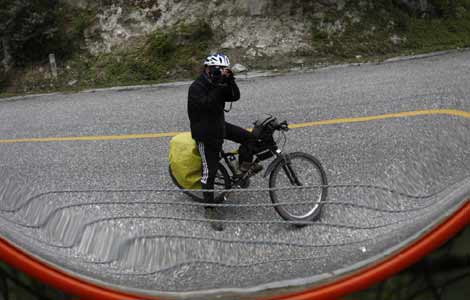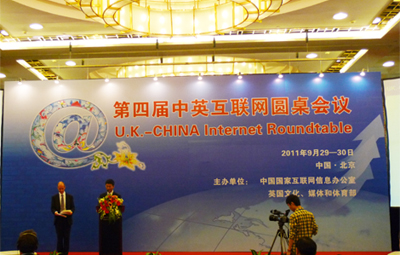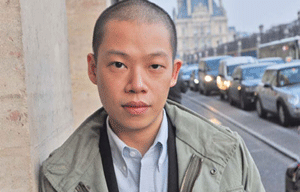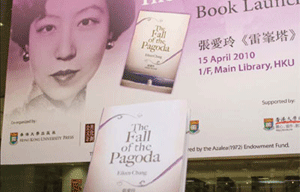Since we're equal, it's time for give and take
Updated: 2011-09-30 13:15
By Chen Zhimin (China Daily European Weekly)
|
|||||||||
Beijing is always ready to help a friend facing problems, but returning the favor would not hurt
 |
Premier Wen Jiabao, speaking at the Dalian Davos Summer Forum recently, reiterated China's support for the euro. He then raised the issue of China's market economy status and expressed his strong wish that the EU and China could achieve some kind of breakthrough in the coming China-EU summit.
Some European media immediately interpreted this as China's play of hard ball, or China's effort to "intimidate" the Europeans by setting "conditions" for China's support of the euro. These are misleading assertions: China does not attempt to link the EU's granting of full market economy status to China's continuous support of the euro. Nevertheless, the episode does indicate that China is feeling itself in a stronger bargaining position vis a vis European countries, and is making stronger demands, though in a very Chinese way.
For a considerable time China has relied more on Europe economically than the other way around. Europe has been China's biggest overseas market since 2007, the biggest source of advanced technology and a major foreign investor. However, a major shift has occurred in recent years, especially since the financial crisis in 2008. While China still exports a lot more to Europe than it imports from it, China has become the EU's second largest and fastest growing overseas market.
According to EU trade data, the value of EU exports to China rose from 48.4 billion euros in 2004 to 113.1 billion euros last year, while EU exports to the US, its largest trading partner, stagnated at about 240 billion euros in the same period. In addition, 33,000 EU firms operating in China registered total sales of 190 billion euros in China's domestic market in 2009. Most of all, it is in matters financial that the relationship is very much reversed.
The current euro crisis, triggered by the debt crisis of southern EU countries, has erupted at a time when other major developed economies, such as the US and Japan, are in financial strife.
China, in pledging not to divest from euro assets and its gesture to buy further government bonds from EU countries has helped buoy the volatile European financial markets, something no other non-EU country has done.
Under such circumstances it is probably safe to say that the exposure of European financial vulnerability and a certain kind of European financial dependence on China have made the economic relationship between the two sides a symmetrical one for the first time in several decades.
In the real world of international relations, states give and take. A state with growing power most often will try to cash in its gained power advantage in its relations with countries that are weak or are heading that way. Following that logic, it is surely no surprise that some Europeans would predict that China would act as they used to behave. China would not be that exceptional in completely disrespecting this basic rule of inter-state politics. However, as China starts to negotiate from a stronger position, three distinctive features of a Chinese style can be identified.
First, as Europe faces its severe difficulties, China has done nothing to exacerbate the continent's predicament in order to extract benefits, as many Western hedge funds are eager to do. On the contrary, China is offering a helping hand, even though it is in no position to act as Europe's savior. China contributed $50 billion to strengthen the lending capacity of the International Monetary Fund in 2009, and a large part of IMF loans are now being used to support the debt-stricken EU countries. China's bilateral support to some EU countries has also given a fillip to market confidence, even if the effects of such remedies are often short lasting.
Second, China has not set direct preconditions for its support of the euro. On Sept 21, the spokesperson of the Ministry of Commerce explicitly said that market economy status and China's support of the euro are separate issues, so the latter is not necessarily bound to the former.
On the one hand, offering some help to the euro is out of China's own interests, such as a stable European market and a more balanced international currency system. On the other, China also wants to act in good faith as a proclaimed "strategic partner" of the EU, to help a friend in temporary difficulties.
Third, none of this means China does not expect a return favor from the EU. Chinese diplomacy dislikes stark naked exchanges of interests, preferring exchanges of favors between friends, a result of a preference in Chinese diplomatic culture for relationship building.
Under the terms of China's accession to the World Trade Organization 10 years ago, the country will automatically gain market economy status in 2016.
For years China's efforts in seeking an earlier EU recognition of China's market economy status have made no headway, which gives rise to widespread frustration in Beijing over its relationship with the EU. Premier Wen surely has reason to raise his expectation that after China acts in good faith, it will be the turn of the EU to address the concerns of the Chinese side, and granting market economy status a few years earlier would be one way to show European side's sincerity and reflect the friendship between the two sides.
Of course it is up to the EU to decide if it will take serious steps to deal with some of China's concerns, such as market economy status, export control of high-tech products, and market access for Chinese investors.
Europe may still be unprepared to make such a move at the forthcoming China-EU summit, perhaps because of internal difficulties in forming a new consensus. If this happens, China will not shy away from its previous support of the euro, but the enthusiasm and the scale of that support may inevitably be tempered.
The author is a professor of international relations at Fudan University, Shanghai.










